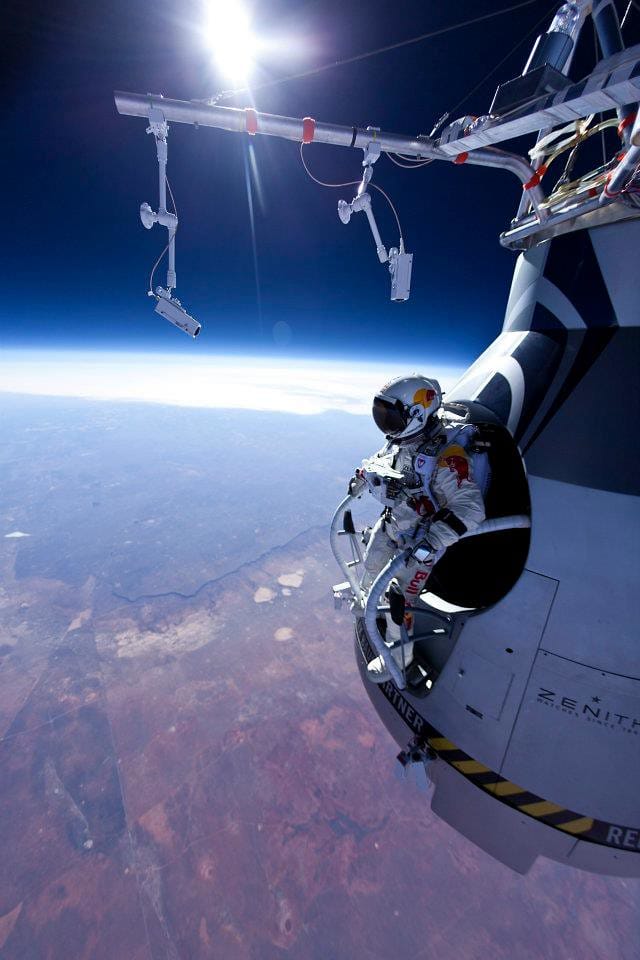Legendary 'Edge of Space' Skydiver Felix Baumgartner Dies in Paragliding Accident at 54
The extreme sports world mourns the loss of Felix Baumgartner, the Austrian daredevil who captivated millions when he jumped from the edge of space in 2012, breaking multiple world records in a feat that seemed to defy the laws of physics and human endurance. Baumgartner died yesterday in a paragliding accident in the Austrian Alps, according to local authorities. He was 54 years old.
A Life Defined by Defying Limits
Baumgartner's death marks the end of an extraordinary career that pushed the boundaries of human achievement. Best known for his historic Red Bull Stratos mission on October 14, 2012, he became the first person to break the sound barrier in freefall, reaching a maximum velocity of 843.6 mph (1,357.64 km/h) during his 24-mile plunge from the stratosphere.
The jump from 128,100 feet above Earth wasn't just a publicity stunt—it was a carefully orchestrated scientific mission that took seven years to plan and execute. Baumgartner's achievement provided valuable data for developing next-generation spacesuits and emergency procedures for commercial space travel, research that continues to benefit aerospace engineering today.
Breaking Records and Barriers
The Red Bull Stratos mission shattered multiple world records simultaneously:
- Highest freefall: 128,100 feet (39,045 meters)
- Fastest freefall: 843.6 mph, exceeding Mach 1.25
- Highest manned balloon flight: 128,100 feet
- Longest freefall time: 4 minutes and 19 seconds before deploying his parachute
The jump was watched live by over 8 million people on YouTube, making it one of the most-viewed live streams in the platform's history at the time. The iconic image of Baumgartner standing at the edge of his capsule, with the curvature of Earth visible below, became one of the most recognizable photographs of the 21st century.
Beyond the Stratosphere
While the space jump defined his legacy, Baumgartner's career in extreme sports spanned decades. A former military parachutist, he gained international recognition for his BASE jumping exploits, including leaps from landmarks like the Petronas Towers in Malaysia, the Christ the Redeemer statue in Brazil, and the Taipei 101 tower in Taiwan.
His fearless approach to extreme sports inspired a generation of athletes and adventurers. "Felix showed us that the impossible was just another challenge waiting to be conquered," said Red Bull's Chief Innovation Officer, who worked closely with Baumgartner on the Stratos project.
The Final Jump
According to Austrian police reports, Baumgartner was paragliding near Salzburg when his equipment apparently malfunctioned during what witnesses described as routine flying conditions. Emergency responders arrived within minutes, but he was pronounced dead at the scene. An investigation into the exact cause of the accident is ongoing.
The irony wasn't lost on the extreme sports community that a man who survived a jump from the edge of space would lose his life during a relatively routine adventure sport activity. However, those close to Baumgartner note that he remained active in various aerial sports well into his fifties, never losing his passion for flight.
A Legacy That Transcends Sport
Baumgartner's impact extended far beyond record books. His Stratos mission advanced scientific understanding of high-altitude physiology and supersonic freefall dynamics. NASA and other space agencies have cited his data in developing safety protocols for future space missions and emergency evacuation procedures.
The Austrian government has announced plans to honor Baumgartner with a state ceremony, recognizing his contributions to both extreme sports and scientific advancement. Red Bull has confirmed that a documentary celebrating his life and achievements is already in production.
Remembering a True Pioneer
Felix Baumgartner's death reminds us that even the most skilled and experienced adventurers face inherent risks in their pursuit of the extraordinary. His legacy lives on not just in the records he set, but in the scientific data he helped gather and the countless individuals he inspired to push their own boundaries.
As the extreme sports community processes this loss, Baumgartner's own words from his historic jump serve as a fitting epitaph: "Sometimes you have to get up really high to see how small you are." His perspective—both literal and metaphorical—will be deeply missed.
